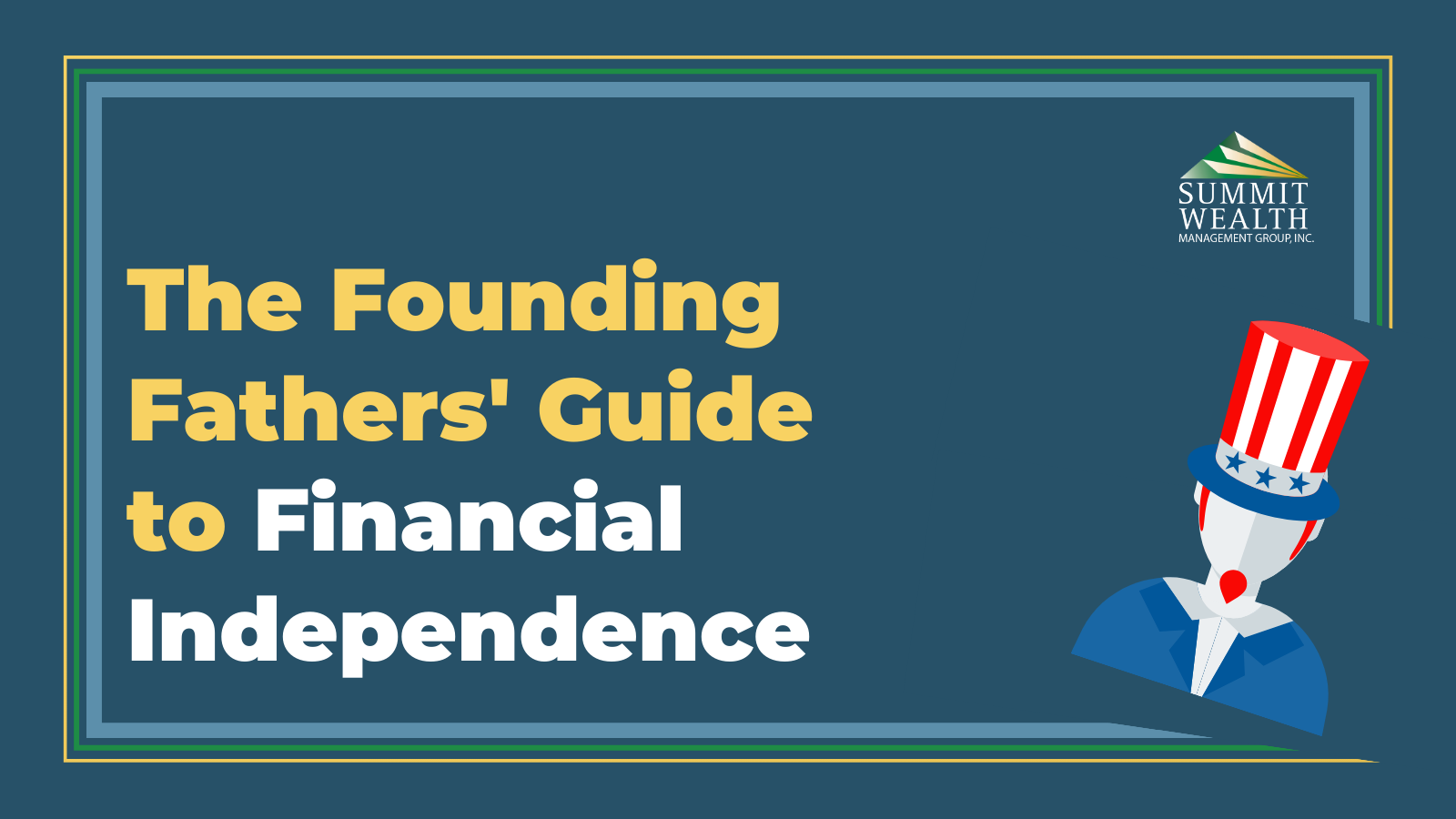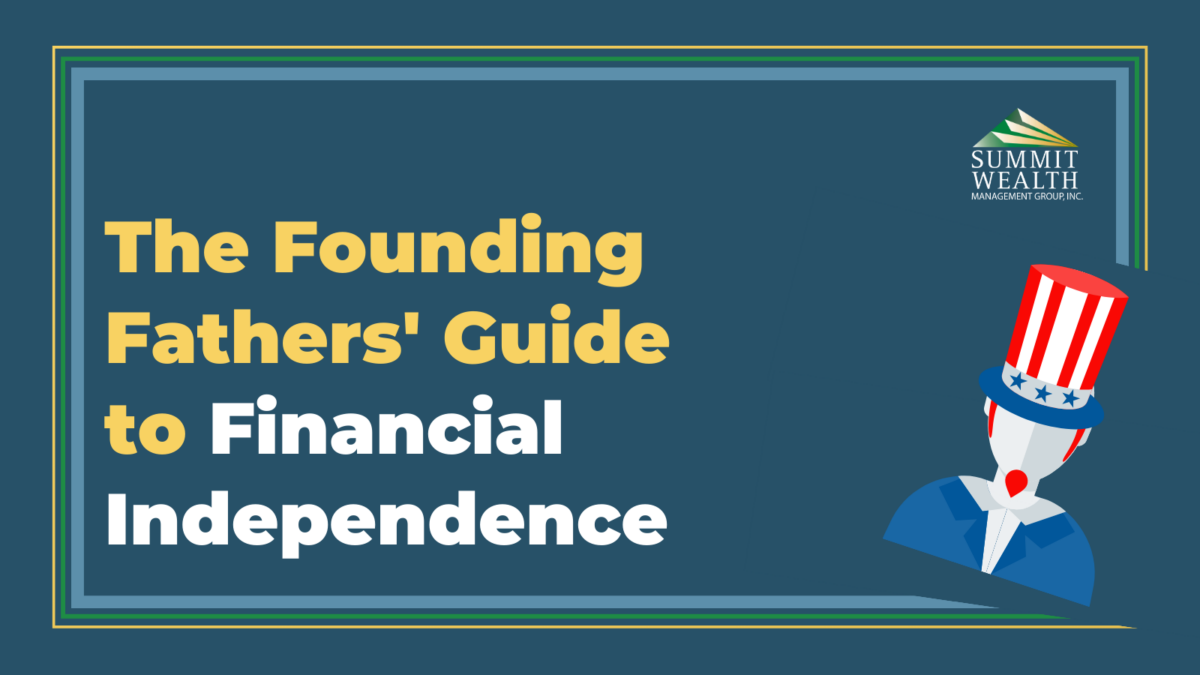
“A penny saved is a penny earned.” This nugget of financial wisdom from Benjamin Franklin, shared in the late 1700s, remains as relevant today as it was then. Despite living in a different era, our founding fathers were remarkably insightful, including when it came to finance. While the concept of financial independence may vary for each individual, it generally implies a degree of self-sufficiency. Financial independence isn’t merely about amassing wealth and retiring early, but about gaining control over your life.
What each individual and family has to figure out is how to measure what financial independence means to them and then how to go about working toward that goal. Here are five tips from our founding fathers to help you work toward your own financial independence.
Cut back on your spending
“Never spend your money before you have earned it.” – Thomas Jefferson
We live in a world where everything is at our fingertips. Very often, it is hard not to want to spend money on the new toys and gadgets that make life so comfortable and entertaining. However, spending money you don’t have can be a dangerous habit with adverse consequences, including debt, damaged credit, and stress. It has also been said that money issues are the number one cause of failed marriages.
Never stop learning
“All the perplexities, confusion, and distress in America arise not from the defects of the Constitution, not from want of honor or virtue, so much as from downright ignorance of the nature of coin, credit, and circulation.” – John Adams
Finance, like the world around you, is continuously evolving. To help mitigate the risk of poor financial decision-making that could adversely impact your long-term goals, make the effort to educate yourself on the financial aspects that are most beneficial to your strategy.
Don’t interrupt the power of compounding
“Remember that money is of a prolific generating nature. Money can beget money, and its offspring can beget more, and so on. Five shillings turn’d is six, turn’d again, ‘tis seven and three pence, and so on ‘til it becomes an hundred pound. The more there is of it, the more it produces every turning, so that the profits rise quicker and quicker.” – Benjamin Franklin
The secret to long-term value investing is patience and allowing the power of compounding to work. The way it works is that when you invest, for example, in the S&P 500, your money grows over time. The returns may be significant for the first 30 or so years (however, there is no guarantee that you will make anything on your investments as all have risk). After 50 years, that is when you could see extraordinary results. The secret to compounding is that interest grows on the interest.
Don’t get into debt (but if you have it, pay it down)
“Think what you do when you run in debt: you give another power over your liberty.” – Benjamin Franklin
According to the United States Census Bureau, 77% of American households have at least some type of debt. Once you are in that hole, it is easier to dig yourself in even further, accumulating more debt and making it extremely difficult to climb out. If you can help it, never get into debt. If you are already there, get disciplined with your spending and pay it down as quickly as possible.
Take control of your budgeting
“I find money some way or other goes very fast. But I think I can reflect it has been spent with satisfaction and to my own honour.” – John Hancock
Having a budget may help you determine how much you can afford to spend on various areas of your life, from responsibilities to entertainment. As Hancock stated, money goes fast, and without a budget, you may realize too late that you have spent too much, which can lead to the potential of going into debt to pay necessary costs.
Consider consulting a financial professional
Finance and money management are very personal, and it is difficult for people to change their habits overnight. If you dream of being financially independent and the words of our founding fathers inspire you, take the necessary steps to make it happen. That starts with reviewing your finances and goals with a financial professional. Don’t wait—time goes by too fast. Schedule that appointment today.
Ready to start investing today?
Important Disclosures
The opinions voiced in this material are for general information only and are not intended to provide specific advice or recommendations for any individual.
Investing involves risks including possible loss of principal. No investment strategy or risk management technique can guarantee return or eliminate risk in all market environments.
All information is believed to be from reliable sources; however, LPL Financial makes no representation as to its completeness or accuracy.
Sources:
4 Signs You're Spending Too Much, Even If It Doesn't Feel Like It (businessinsider.com)
Financial-Advice-From-Our-Founding-Fathers.pdf (bhbank.net)
John Hancock - I find money some way or other goes very... (brainyquote.com)
175820franklin20wealth.pdf (utexas.edu)
This article was prepared by LPL Marketing Solutions
LPL Tracking # 575232


